The participant’s voice from ‘Continuum of Care (CoC) for Maternal, Newborn and Child Health (MNCH) and UHC’
2024.03.05
After 3 years of Online program, Knowledge Co-Creation Program ‘Continuum of Care (CoC) for Maternal, Newborn and Child Health (MNCH) and UHC’ was held in Japan. The program in Japan was held from January 17 to February 1, 2024.
Participants presented online the 3 weeks’ progress after return to their home countries of Mini Action Plan (MAP) which they developed during their stay in Japan.
This year, there were 11 participants from Burundi, Ghana, Indonesia, Pakistan, Rwanda and Sierra Leone and they were sharing their knowledge through lively discussions.
We would like to share the voice of participant, Dr. KUMI Henry Kintoh, who is working at Korle-bu Teaching Hospital in Ghana.
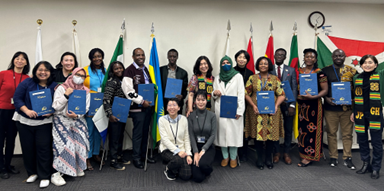
“We were highly privileged today to have a lecture delivered excellently by Ms. Keiko OSAKI (JICA Senior Adviser). Her vast global experience in the utility of the maternal and child health home-based records (MCH handbook) was evident.
The MCH handbook has a long history and is used in different ways in different countries. It contributes to the continuity of care for maternal and newborn health in multiple ways. Some countries have used separate stand-alone booklets in which case the M and C in MCH are separated. Others, however, have it as an integrated book hence combining the M and C in MCH. It is however interesting to note that there is a massive research potential in this area of the type or format of home-based records for maternal and child health to ultimately answer the question as to which types or format is more effective.
Nonetheless, the home-based MCH handbook contains the health records of mothers, newborns, and children up to 5 years. It complements facility-based records but because it is hand-held and home-based, mothers and couples always have their copy of the health records of mother, newborn, and child. This fosters the continuity of care for mothers because irrespective of where they find themselves, healthcare providers can have a detailed summary of their health history and offer them continuity of care, thus serving as an excellent tool in the referral system. Additionally, the home-based MCH handbook may enhance partner and family involvement in maternal and child health. The handbook is enhanced with numerous illustrative pictures for easy understanding by all and mothers and their partners can read the handbook at their leisure. This has the potential of enhancing shared decision-making which is essential for a positive pregnancy experience and respectful maternity care.”
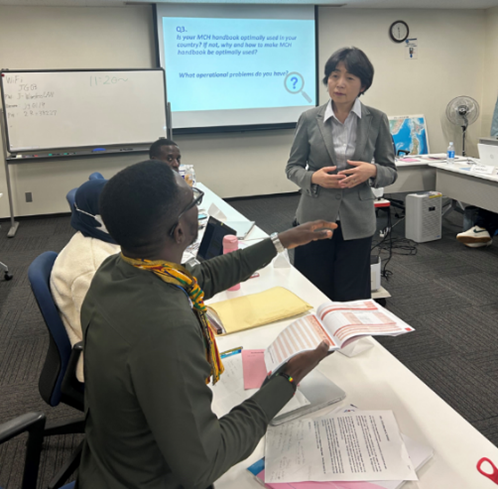
Dr. Kumi asks a question to Ms. Osaki
“The MCH handbook is also used by all cadre of healthcare workers including public health nurses, midwives, and doctors-this is a good thing! However, sometimes there is no agreement as to which cadre of healthcare providers must fill/evaluate specific aspects of the MCH handbook leading to, for example, missed opportunities for vaccination (MOV) assessment.
Accurate vital statistics such as date of birth and place of birth are so critical for national development, but this data may be lost or may be inaccurate without proper documentation and data protection. The MCH handbook is critical in this area as it contains this key information. In some countries, the handbook is used in school enrollments and in Ghana for example, it serves as the pregnant woman’s “passport” to insurance premium waiver and to free maternity care. It has been found out in Burundi that, the home-based MCH handbook ensured that parents kept their child’s notification of birth filled by health workers at a health facility and made the process of birth registration simpler. The MCH handbook was noted to contribute to ensuring that every birth is counted.
It was interesting to note that despite Japan’s well-known advancement in technology, the home-based MCH booklet was instrumental in the achievement of universal health coverage and is still utilized today.”
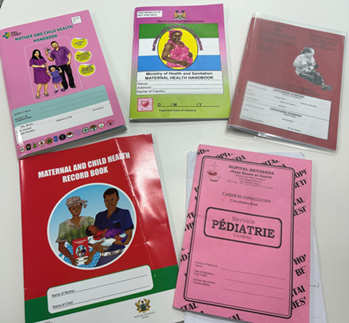
MCH Handbook which participants brought
“The MCH booklet should remain home-based, and technology should only supplement its potential by having stakeholder discussions regarding possible digitalization of certain aspects of this important booklet.
Periodic review and update of the MCH handbook is essential but should not just focus on addition of new information but also removal of information considered unnecessary by all stakeholders.
Despite the potential benefits of the MCH handbook to mothers, children and society, challenges such as stock-outs and poor completion by healthcare workers exists.
We must work together with mothers, families, and learn from each country’s experience to help bring to fruition the full potential of this little but mighty booklet with support from development partners such as JICA and its wonderful and experts.”
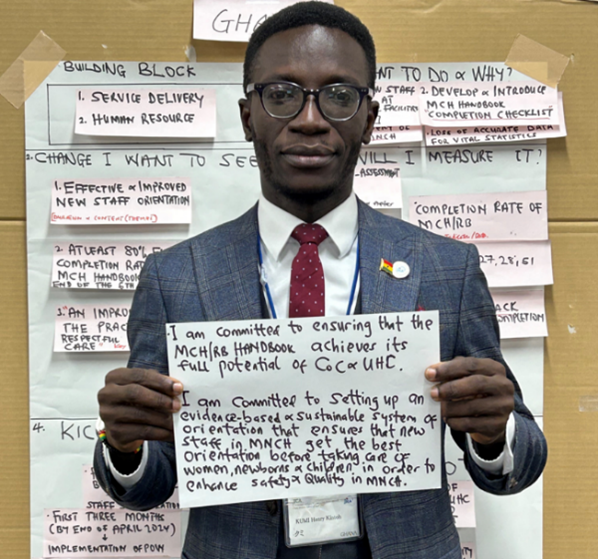
Dr. Kumi with "Commitment to own Action Plan."
Three weeks later, Dr. Kumi reported his activities after the return to his country in Online program.
“Since I came back from Japan, I have put together a report and given a presentation to my entire obstetrics department with midwives, doctors, and senior consultants and managers in attendance. They were very happy with the MAP. One of the senior consultants in the maternity unit has suggested that I start by taking the entire department through the fundamentals of the MCH handbook and how to optimize its use. Because Korle Bu Teaching Hospital is the largest teaching hospital in Ghana, I am confident that any little improvement can have a far-reaching impact.”
The participants are using the knowledge they gained from the course to take a leadership role in promoting the effective use of the MCH handbook. Not only this year’s participants, but also participants who joined this program before have been working toward the goal of "respectful maternity care to all women”. Together with our colleagues in Japan and other countries, let us go forward to achieve our goal!
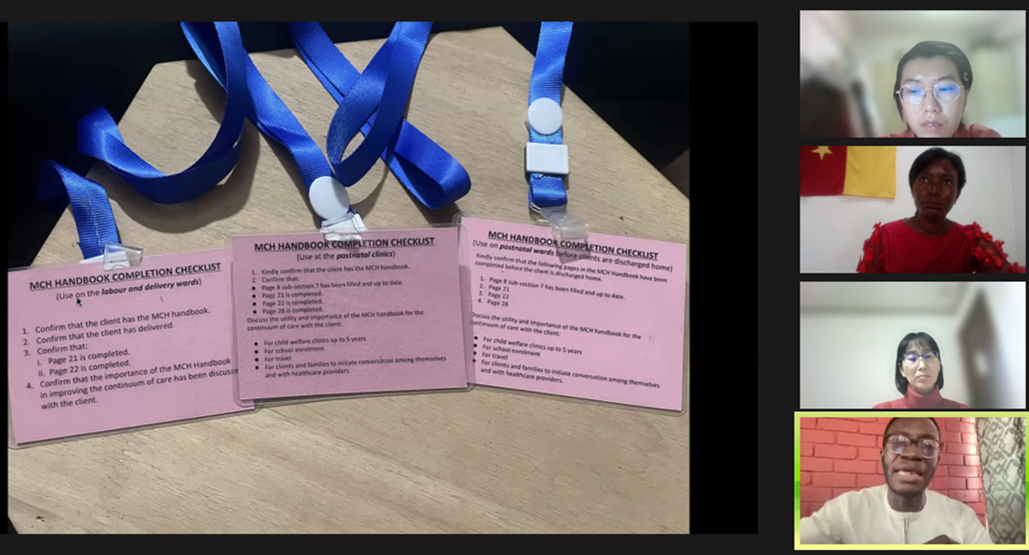
Dr. Kumi introducing “MCH Handbook Completion Check List” developed after his return to Ghana at the progress report of MAP
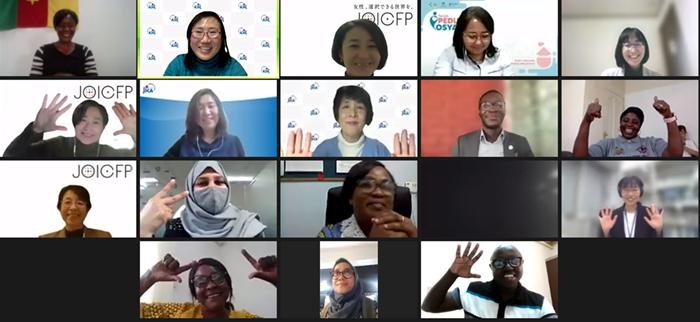
Closing Ceremony
scroll